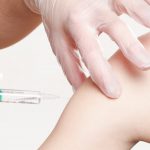Last year, millions of people in the United States alone have submitted their DNA for analysis. Stanford researchers have found that information people receive not only predicts their risk for disease but, it turns out, in some cases might also have influenced that risk.
In 2017, uptake of home DNA tests went rocket high, giving millions of people around the world a whole new level of insight into the ways their genes work. Researchers from Stanford University have observed information about their genetic risk for disease can make a change. What might come as a surprise, they found that the information alone changed how people performed on tests. We often forget how powerful our mind-set is.
A study recently published in Nature Human Behaviour proves knowledge could be a dangerous thing. DNA results brought a kind of genetic placebo effect that actually impacted how participants’ bodies functioned.
“Receiving genetic information doesn’t just make you more informed,” Alia Crum, psychologist and senior researcher of the new study, said for Stanford News. “What this study shows is that it can also have a physiological impact on your body in a way that actually changes your overall risk profile.”
For an experiment, the research group took DNA samples from over 200 participants. They were divided into two smaller groups. 116 of them carried out an exercise test on a treadmill, while 107 of them ate a small meal.
A week later, the participants returned to repeat their test (exercise or eating). Before the experiment, researchers made a crucial difference. Participants were given information on the results of their genetic test. The catch was, they were told random results and not the real ones.
The exercise group was informed they either possessed a gene variant associated with poorer aerobic exercise capacity, or a gene that gave them extra endurance. Similar approach was used on the other group. One half of the eating group was randomly informed they could be genetically predisposed to obesity due to a gene variant that made it harder to feel full after eating. Others were told their genes promoted feelings of satiety, helping to protect them from obesity.
Results showed this false information affected how they performed in next tests. Those on the running machine who had the impression their aerobic capacity was impaired, struggled and quit sooner than on their first test. Another half of the group performed about the same. In the eating test, those who were told they could be predisposed to obesity did about the same as before. They rated their levels of fullness similarly, and produced similar levels of a fullness hormone in their blood. On the other hand, participants who were told they were protected from obesity by virtue of their satiety-promoting gene, produced about 250% more of the fullness hormone.
“It was really a much stronger and faster physiological satiety signal, and this mapped on to how much more full the participants said that they felt,” said Bradley Turnwald, the first author of the study.
The researchers want to emphasize that their findings don’t mean getting your genome sequenced is a bad idea. Their wish is to raise awareness that the genetic information itself can have a measurable effect on our physiology, even if we’re not genetically predisposed to certain things.
“The take-home message here is that the mind-set that you put people in when you deliver genetic risk information is not irrelevant,” said Crum. “The mind-set of being genetically at risk or protected can alter how we feel, what we do and – as this study shows – how our bodies respond.”
The placebo effect has certain “powers” over our bodies and minds. So researchers state it is no wonder that genetic information can be suggestive too. Since there is a real ongoing explosion in consumer DNA sequencing, people should be aware of this side of the coin too.
“Although much remains to be explored, the present research represents a major advance in our understanding of the impact of genetic risk disclosure and suggests that learning of one’s genetic risk of obesity may in fact exacerbate one’s risk,” the authors wrote for Nature.
Learn more about home DNA tests in the video below:
Alia Crum explained why is placebo so important, in the video below:
By Andreja Gregoric, MSc









